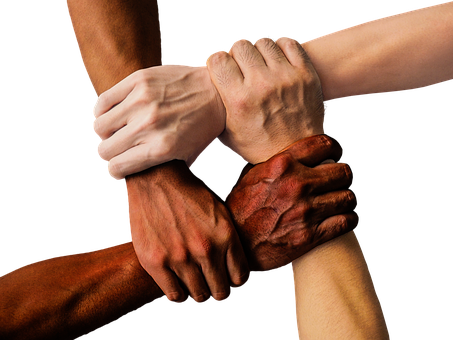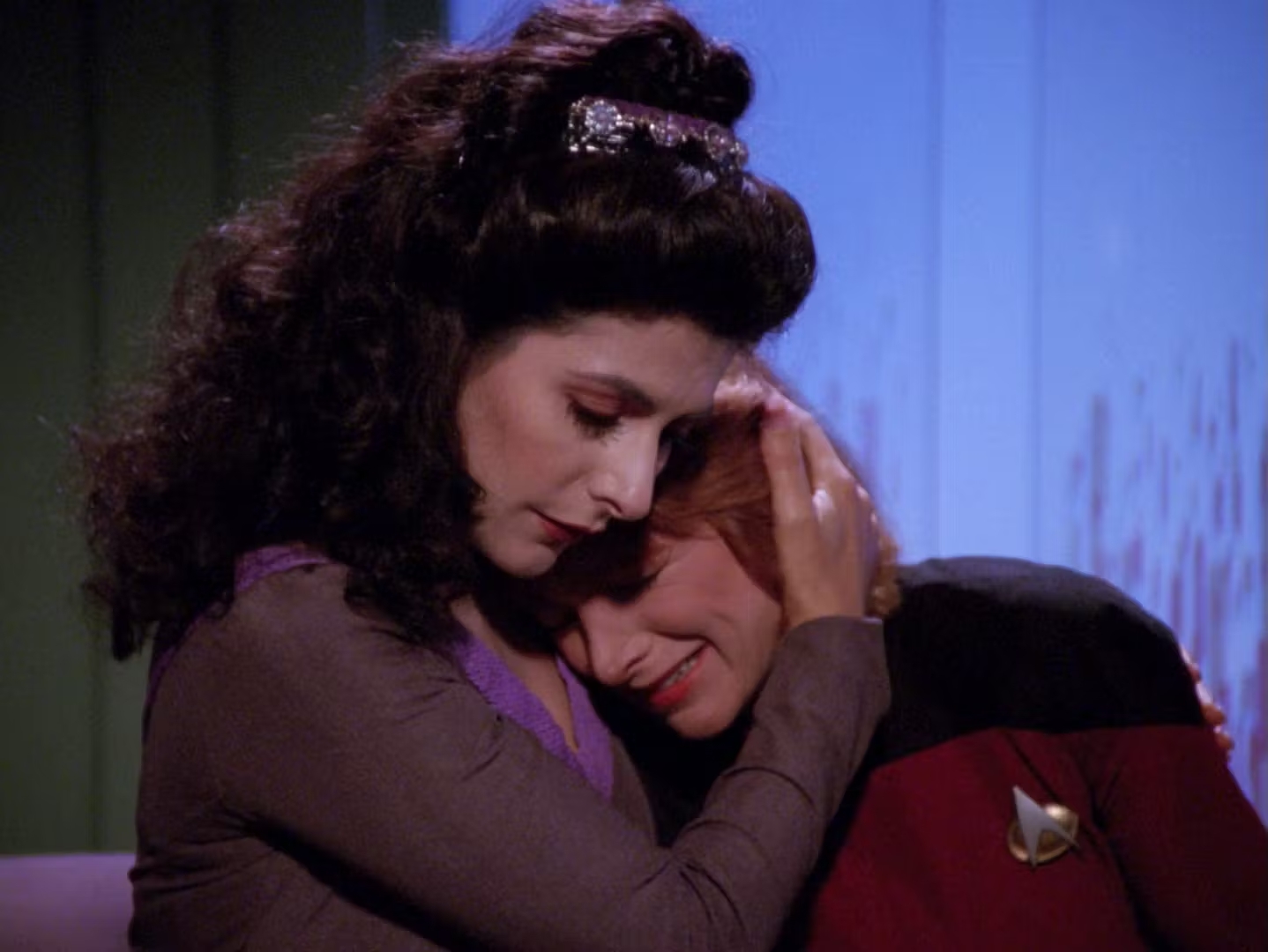
Last week I taught my popular stress and anxiety management workshop and each time, grateful attendees share that the course was a game changer for them. It got me thinking that in keeping with my commitment to share more of my work with you this year, I thought I’d share one of the most important concepts that we cover in the course:
The number one predictor of longevity and resilience in the face of stress happens to be the same concept that repeats itself again and again in all kinds of different studies and Ted Talks and that is:
HUMAN CONNECTION
This basically counters historically popular culture of stoicism (stiff upper lip) in the face of adversity, as it can literally reduce one’s life span!
Check out these 3 studies:
Study 1: You may have heard of the Blue Zones of the world with the highest concentration of centenarians: one of the main reasons for longevity is that they value community and family connection more than the average developed world.
Study 2: The 80 year old adult development study at Harvard that followed a group of men from all walks of life – turns out education and health habits didn’t matter as much as connection did; the men who lived longest were the ones that were in happy marriages and felt supported.
Study 3: The Stanford stress study that followed another group of people and asked about how much stress they had and what they believed about stress. Then they checked death records to see who died first.
Results show that people who seek human connection in times of stress live longer. (mic drop)
Which Begs the Question: HOW DO WE CONNECT MORE? 
While we don’t want to use our friends and family as dumping grounds for everything that upsets us, the key is to work on being brave enough to be vulnerable and to reach out and ask for support during challenging times.
Then ideally, if we do this for them in return, they tend to stick around and voilà: We Grow our Stress Posse!
But How Do We Know Who to Choose ?
This can be the tricky bit as not everyone can be trusted with our vulnerabilities. You’ll typically know that someone is part of your stress posse because when you leave their company or conversations with them, you generally feel better, lighter, heard and even energized.
The KEY is that most of the time, there has to be A MUTUAL EXCHANGE OF EFFORT, ENERGY and SUPPORT.
A truly supportive person will typically do these 3 things when you share something challenging with them:
1) They actively listen to you (they stop what they are doing, don’t interrupt and give you cues that they are engaged.
2) They will help you express yourself by showing a genuine interest in what you’re going through – they’ll ask questions to better understand.
3) They will then empathize and validate your feelings and experiences and may even ask if there’s anything they can do to be helpful.

And here are some cues to help you know that someone may not be part of your stress posse:
1) They judge, shame or guilt you.
2) They typically make it about them, what they’re going through or how what they are living is way worse (it’s shouldn’t be a competition…)
3) They launch into giving you their unsolicited advice, opinions or solutions without checking first if you want them.
Obviously no one is perfect so it’s possible at times that even well intentioned partners, friends and family members may give unsolicited advice and opinions to be helpful. So it’s okay to say: I actually just really need someone to listen and/or a hug today.
A true friend will say: no problem, I got you.
SIDEBAR: hugs also release oxytocin which is why it’s called the ‘cuddle’ hormone 🙂
Also, some folks may be more inclined to try and make you laugh or distract you when they aren’t sure of what to do or say and that doesn’t make them unfit to be part of your posse. Sometimes that may just be what we need! It’s good to have a variety of different people with different strengths as part of our posse that we can turn to in times of need.
Here are 3 types of folks who are most likely to struggle with creating a Stress Posse and what they can do about it:
The STOIC 
If you were brought up in an environment where expressing feelings other than positive ones was considered ‘bad’, ‘ungrateful’, ‘dramatic’, ‘annoying’, ‘weak’, or your feelings were simply overlooked as invalid or unimportant, then opening up may prove more challenging for you.
This is why it’s so important to choose your people wisely.
Don’t expect empathy and support from folks who are are emotionally avoidant, always ‘fine’ or judge vulnerability in others. Just because you’ve had a disappointing experience (or several), this doesn’t mean that you should close up and just deal with everything yourself as science says that’s unhealthy. Perhaps you just need to be a little wiser and more strategic about who you choose to confide in and who to trust with your vulnerabilities.
Even our parents, romantic partners, friends and family members may simply be incapable of truly relating or understanding you. And at times they are just incapable of empathy and emotionally connected conversations. While disappointing, it’s one of the reasons that therapists, counsellors and coaches exist because sometimes it’s just easier, and healthier, to confide in a stranger than to try and get blood from a stone.
The CHRONIC COMPLAINER 
There are a lot of hurt and angry folks out there who haven’t yet learned how to manage their emotions and express themselves in healthy ways. Sadly, this means that they may tend to constantly vent, complain, criticize or sit in perpetual victimhood without much end in sight. (We aren’t talking about a few months here during a tough time but rather a pattern that usually exists over years.)
The problem with constant complainers is that they often don’t really want help or solutions but rather just to vent as this way they don’t have to take responsibility or change anything. The problem is that they often lose sight of how our brains work. Our amygdala – located in the limbic part of the brain – has this cool job which is to keep us safe from harm. So it’s always working in the background to help us identify potential threats – not just life threatening ones but even threats to our happiness and joy. So if the majority of our interactions with someone are negative or draining, our brains will eventually encourage us to avoid that person to protect our energy and our joy. The end result is that the complainer then perpetuates their angry cycle of feeling like no one cares when in fact, they are the ones who often repel their potential stress posse who have empathy fatigue.
To get empathy we must first remember to also give it.
We must also be willing to look within in terms of what’s really going on with us and what causes us to be so critical and in essence, so unhappy. While it may not be our fault in terms of what happened to us, when we are constantly blaming others for our misery then we disempower ourselves and don’t learn to take responsibility for our own happiness.
It’s no one else’s responsibility to make us happy but our own.
It may therefore be possible that we need better tools or even professional support to work through our negativity as it can be unfair to constantly dump all of our angst on our support person(s) or to get upset when they don’t know what to say anymore or have lost the energy.
We must remember the need for balanced exchanges of energy with our support posses and to give what we want in return.
The EMPATH 
I remember when I was a little girl as young as 9 or 10, I’d sit and wait for the bus and random strangers would sit and talk to me about their problems. My mother would often notice and would worry about it and ask me who was talking to me and I’d say: ‘it’s okay mom, that man was sad so I was just helping him and he’s okay now.’ Maybe it’s because I feel deeply or that my name means ‘listener’ but whatever it is, I have a long history of being the go to person for folks in distressnand even ended up helping my driving instructor through his terrible divorce when I was 17 as I drove and he cried.
Some are just naturally wired for empathy and tend to be more flexible and understanding than others which is a strength but can also be our greatest downfall if we don’t manage our energy.
What took me many years to understand, is the importance of protecting our energy and not to allow ourselves to become emotional dumping grounds for everyone around us.
That mutual EXCHANGE OF ENERGY is crucial as is having boundaries.
Recognize the difference between folks who are going through a rough time and need support versus those who constantly complain and steal your energy otherwise you will become depleted or will eventually snap because there’s just so much you can give before the tank runs out, Especially if you’re also going through challenges yourself.
It’s okay to be the go to person and to have a lot of compassion, but make sure you also source your own trustworthy posse so you can reach out and seek support to replenish your tank. And if you find that you feel mostly drained after your interactions with someone then consider that this may be a one-sided posse and take some space or open up about it with them because your needs and boundaries matter too.
Here’s to creating your posse and a big oxytocin filled hug to you!

Image attributions:
Image 2: Hugh Edmund, CC BY-SA 4.0 https://creativecommons.org/licenses/by-sa/4.0, via Wikimedia Commons – Image 3: rawpixel.com – Image 4: Creator: tom jervis
